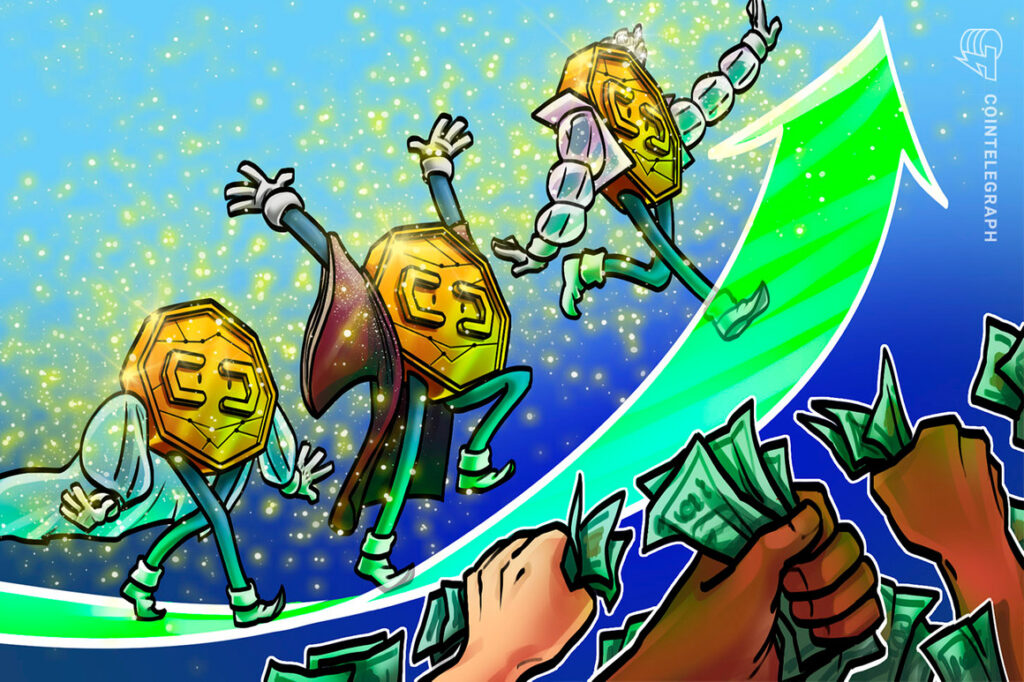Market maker Kairon Labs have been working with projects such as StepApp (FitFi) and Ergo, providing liquidity on over 30 exchanges.
Kairon Labs and most other market makers agree that “liquid markets are healthy markets,” as when the markets are liquid, it allows for lower slippage and faster trades to occur, which allows for the fair trade of a token.
Cointelegraph spoke with the managing partner Jens Willemen for his comments on current market conditions and a brief explanation of how market makers are able to retain profitability in current bearish market conditions.
Cointelegraph: What is a market maker?
Jens Willemen: I would say that the market maker is someone who tries to create a healthy market where participants can find each other much more easily.
Whether you want to buy or you want to sell, you should always be able to do it at the current market price without too much slippage, which means price impact.
It should be a net positive to have market makers in any kind of asset class. That should be the goal. It shouldn’t be value extractive.
CT: How do market makers make money?
JW: Anytime you buy or sell, there’s always a difference between those two and between the bid and the asking price. That’s where we make the money. The market maker takes the margin between those prices.
CT: How has Kairon Labs faired these last few months?
JW: The crypto market has been in a rough spot the last couple of months. On our side, we were well-positioned. As a market maker, we are supposed to trade as neutral as possible, but in a lot of cases, we had a short bias for the last couple of months.
So for us, it’s actually been the three most profitable months ever, more profitable than the bull run, even in terms of trading PNL [profit and loss], so it’s been good. We kind of expected this crypto winter to happen, but not as rough as it’s been, as we even saw Bitcoin (BTC) go as far down as $17k. But, for the last couple of days, it is starting to look better again. We expect this negative trend to continue for a while, as the market will flush out all the lesser projects and all the people with the lesser intentions.
Once that happens, we are sure that the market will recover again and we’ll see new highs at some point. We’re sure of that.
CT: How did Kairon Labs get started in market making?
JW: At first, it was just Kairon labs co-founder Mathias and myself. Mathias is our head of trading and our chief technology officer and I take care of the operations and of the business component. Basically, we saw that there was a really big need for liquidity for smaller market cap altcoins.
Mathias used to be an Enterprise Architect at one of the biggest banks in Belgium. He’s very technical and he’s got a strong trading background. So, he developed the first very simple algorithm, a very simple trading bot in order to provide liquidity. And, I found our first client, we connected to the first exchange and we started trading.
Recent: Hodlers and whales: Who owns the most Bitcoin in 2022?
Very simply, we started in 2019 without any investors. It was just like something we just did and then grew from there on. Very organically. Over the years, we’ve never had any outside investment, so we really just grew organically to the 20 people team that we have today, where we are market-making for over 60 different token projects for around 32 different exchanges at the moment.
CT: Is market-making simply running a trading bot?
JW: Most market makers have a custom trading strategy that is made for specific trading pairs such as Ether (ETH)/Bitcoin; other trading pairs have less volume and require a different strategy to keep the margins in check. The trading bots are the main component, but there are many more moving parts when running a real market-making operation.
CT: Is market making simply wash trading?
JW: Market making is not wash trading because wash trading is when you trade among yourself to create false volume.
Market making encourages organic growth by providing the necessary liquidity to perform your trade, ensuring that there is always a buyer and seller.
CT: Do market makers influence the market?
JW: Market makers do not influence financial markets, they simply provide liquidity for traders to enter and exit the trades, which may help price discovery.
CT: How much does a market maker charge?
JW: Our business model at Kairon is similar to other market makers in the sense that we have a combination of a monthly fixed fee and then a profit split. So that means that we always, in any kind of market, at least make a minimum guaranteed amount of money every month for the company, which means that we can guarantee that we keep paying everyone, we can keep running the operations.
Recent: Does the Metaverse need blockchain to ensure widespread adoption?
That is, I think, our biggest strong suit when these unfavorable market situations occur. Then, we put aside a lot of capital as a backup because we know crypto can be quite volatile and so everything isn’t dependent on the market. So we’re well prepared, we’re well-capitalized and the business model supports us during crypto winters like the one we’re experiencing now.
Crypto winter is a term that was coined in order to describe what happens when the cryptocurrency market falls for an extended period of time. It is difficult to predict how much longer the crypto winter will last, but what we do know is that crypto has come back from worse before.


